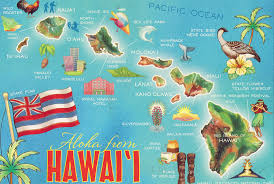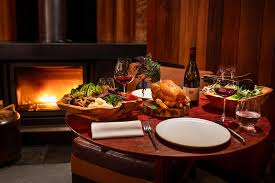Unlocking Your Travel Experience: The Essential Role of a Tourist Information Center

Tourist Information Center: Your Gateway to Exploring a New Destination
When you arrive in a new city or country, one of the first places you should visit is the Tourist Information Center. These centers serve as invaluable resources for travelers, providing a wealth of information and services to help you make the most of your visit.
At the Tourist Information Center, you can find maps, brochures, and guidebooks that will help you navigate the area and discover its attractions. Knowledgeable staff members are on hand to answer your questions, provide recommendations on things to see and do, and offer insider tips that only locals would know.
Need help booking accommodations or arranging transportation? The Tourist Information Center can assist with that too. They can provide information on hotels, guesthouses, rental cars, and public transportation options to suit your needs and budget.
But the services offered by Tourist Information Centers go beyond just practical assistance. They often host cultural events, workshops, and guided tours that give visitors a deeper understanding of the local culture and heritage. By participating in these activities, you can immerse yourself in the destination’s unique traditions and customs.
Whether you’re a first-time visitor or a seasoned traveler, the Tourist Information Center is an essential stop on your journey. Take advantage of their resources and expertise to enhance your travel experience and create lasting memories in your new destination.
9 Essential Tips for Making the Most of Your Visit to a Tourist Information Center
- Visit the tourist information center for maps and brochures.
- Ask the staff for recommendations on must-see attractions.
- Inquire about guided tours or local events happening during your stay.
- Check if the center offers discounts on entrance fees or transportation.
- Get information on public transportation routes and schedules from the center.
- Learn about dining options, including popular local restaurants and cafes.
- Find out about nearby accommodations and availability for lodging.
- Ask about safety tips and areas to avoid in the city or town you are visiting.
- Don’t hesitate to seek assistance from the friendly staff for any travel-related queries.
Visit the tourist information center for maps and brochures.
When exploring a new destination, be sure to visit the tourist information center for maps and brochures. These resources are essential for navigating unfamiliar surroundings and discovering hidden gems that may not be found in mainstream guidebooks. The maps provided at the tourist information center can help you plan your itinerary efficiently, while the brochures offer valuable insights into local attractions, events, and dining options. Don’t miss out on this valuable resource that can enhance your travel experience and make your trip more memorable.
Ask the staff for recommendations on must-see attractions.
When visiting a Tourist Information Center, don’t forget to ask the knowledgeable staff for recommendations on must-see attractions. These local experts can provide valuable insights and suggestions that will help you make the most of your time in the destination. By seeking their advice, you can discover hidden gems, off-the-beaten-path locations, and popular landmarks that may not be listed in guidebooks. Trusting the staff’s recommendations can lead to unforgettable experiences and a deeper appreciation for the destination’s unique culture and attractions.
Inquire about guided tours or local events happening during your stay.
When visiting a Tourist Information Center, be sure to inquire about guided tours or local events happening during your stay. These tours and events provide a wonderful opportunity to explore the destination in a more immersive way and gain insights into the local culture and traditions. Whether it’s a historical walking tour, a culinary experience, or a cultural festival, participating in these activities can enhance your travel experience and create unforgettable memories of your time in the area. Don’t miss out on the chance to discover hidden gems and connect with the community by taking advantage of these guided tours and local events recommended by the Tourist Information Center.
Check if the center offers discounts on entrance fees or transportation.
When visiting a Tourist Information Center, it’s a smart idea to inquire about any discounts they may offer on entrance fees or transportation services. Many centers have partnerships with local attractions and transportation providers, allowing them to provide visitors with special deals and savings. By taking advantage of these discounts, you can make your travel budget go further and enjoy more experiences during your trip. Be sure to ask the staff about any available discounts to maximize your sightseeing opportunities while saving money.
Get information on public transportation routes and schedules from the center.
When visiting a Tourist Information Center, be sure to inquire about public transportation routes and schedules. This valuable tip can help you navigate the area efficiently and cost-effectively, allowing you to explore the destination with ease. By obtaining information on bus, train, or subway routes from the center, you can plan your itinerary effectively and make the most of your time exploring all that the destination has to offer.
Learn about dining options, including popular local restaurants and cafes.
When visiting a Tourist Information Center, be sure to inquire about dining options, including popular local restaurants and cafes. These centers are a great source of information on where to experience the authentic flavors of the destination. From hidden gems known only to locals to well-known eateries that have stood the test of time, exploring the culinary scene can be a delightful way to immerse yourself in the culture of a new place. Don’t miss out on the opportunity to savor delicious dishes and beverages that showcase the unique tastes of the region.
Find out about nearby accommodations and availability for lodging.
When visiting a Tourist Information Center, be sure to inquire about nearby accommodations and the availability for lodging. The staff can provide valuable information on hotels, guesthouses, and other lodging options in the area, as well as help you with booking arrangements. By seeking their guidance on accommodations, you can ensure a comfortable stay that meets your preferences and budget while exploring the destination hassle-free.
Ask about safety tips and areas to avoid in the city or town you are visiting.
When visiting a Tourist Information Center, it is important to inquire about safety tips and areas to avoid in the city or town you are exploring. By seeking advice on potential risks and unsafe areas, you can better protect yourself and ensure a smooth and secure travel experience. Local staff members can provide valuable insights on how to stay safe, avoid scams, and navigate unfamiliar surroundings with confidence. Being informed about safety precautions will help you make informed decisions and enjoy your visit without any concerns for your well-being.
Don’t hesitate to seek assistance from the friendly staff for any travel-related queries.
When visiting a Tourist Information Center, it’s important to remember that the friendly staff are there to help you with any travel-related queries you may have. Don’t hesitate to reach out to them for assistance, whether you need directions, recommendations on local attractions, or tips on where to eat. The staff’s expertise and knowledge can greatly enhance your travel experience and ensure that you make the most of your time in a new destination.







